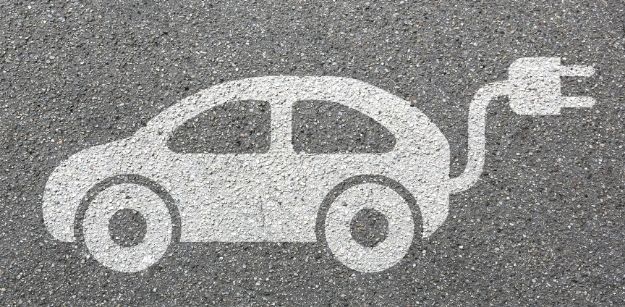With the fuel price being at a record high the discussion on alternate commute options has come to the forefront. The first option that comes into mention is that of electric vehicles, and as it appears to be, owning electric bikes and electric scooters can help in cost-cutting on fuel expenses. However, there is still a lot of confusion on the credibility and viability of electric bikes, based upon the speed, price, and charging facilities.
As it is evident that the electric vehicle industry is booming but the consumers are yet to give it a full shot. The primary concern of the consumers underlies the higher price of these vehicles and the supporting infrastructure. There is no denying that the electric vehicle industry is booming up high and the fuel price skyrocketed the process. But the question which might be hovering your mind is it worth switching to electric bikes or any kind of electric vehicles?

Well lets us look at some of the advantages why electric bikes are the future of transportation?
The electric bike price might appear a little higher than the conventional two-wheelers but it can add value as a long-term investment.
The price of the electric vehicles is based on the models and features and types just like the traditional petrol or diesel vehicles. You can choose the vehicle as per your budget and requirement but the concluding point is the excellent investment option it stands as for the owners.
Compared to the traditional two-wheelers the cost of running for electric bikes is less by at least 5%, and the percentage has the chances of going up in future.
The reason why we are on this agreement about EVs is because of their running cost. Yet again depending on the battery technology, charging range, and distance covered per hour the running cost gives a tough competition to the conventional vehicles.
The electric bikes are reportedly cheaper to maintain as they are engineered with long-term efficiency. The EVs are efficient and the physical maintenance of the vehicles is far lesser than your fuel-based vehicles. Apart from the physical maintenance and you also end up saving a lot of money on tax, government grants, etc.
Electric bikes offer an efficient and advanced mode of transportation, particularly for the daily commuters. Daily commuters have a lot to gain from the plug-in vehicles with advanced features, no lining up for refueling, maintenance activities, etc. The vehicles come with features like an anti-theft alarm, central suspension connectivity with the phone, and likes.
The better alternative for an eco-friendly travel option as electric bikes has zero tailpipe emission, implying the use of sustainable energy and less pollution.
EVs have the advantage to offer pollution-free transportation. The fuel burning from vehicles contributes to a major part of environmental pollution. Also, the hunt for sustainable energy and the potential to go green to the maximum level is achieved by electric bikes.
Finally brings you to the realm of a tech-savvy commuter.
Transporation is extensively going tech savvy with smart cars and the advanced features being introduced. Just to mention electric vehicles will also make you a lot ‘cooler’ as it is stated as the smart mobility for the smart generation.
Well, these are surely some very compelling reasons to switch to EVs. The promising aspects of these vehicles have pulled in huge investors and automobile manufacturers to partners. Evidently the investors and manufacturers have mapped the potential and electric bike price can’t be looked at in isolation as innovation also comes with a price. This in real scheme of things is certainly a better bet. The current status of the electric bike price is higher as the industry is yet to gain a competitive edge. But it really depends how you look at it, running cost is next to nothing as well.
In India electric bike price starts from around 40,000 to above 1 lakh rupees. The price depends on the make and manufacture of the model as well as the manufacturers investing in the venture. With big automobile manufacturers investing in EVs in India electric bike prices are getting defined and the market will soon witness a variant of electric bikes and scooters. With the daily commuters affected the most by the breaching of fuel prices in India to almost 100 rupees, EVs have an advantage in the current market.
There is no doubt that electric mobility is the future of transportation but let us get started with the simplest ones and understand if electric bicycles are worth it? Electric bicycles or e-bikes as they are popularly known are good for short-distance commute without having to burn any fuel contributing to an eco-friendly lifestyle. It can be called a hybrid of a motorcycle and a pedal-based cycle, the advantage being it is battery-based and doesn’t require the traveler to pedal and is, therefore, a comfortable option for anyone who has knee pain and other related issues. The electric bicycles have a minimum speed range and therefore don’t require any license or registration and can be used by students and other solo riders who can’t get a license for their easy day-to-day commute.
The manufacturers like Gemopai and many others are taking the game up by bringing the plug-in vehicles in the market readily available with quality customer assistance and convenient transport options. With the variants available for different manufacturers in the market already, the future of electric bikes in India is of high esteem. Let’s, take for example Miso by Gemopai designed for solo rides, with swappable batteries. Further, this variant of electric bike doesn’t require an RTO or a driving license making it one of the most convenient commute options who travel daily to offices or colleges or for other purposes.
Miso by Gemopai is the basic variant of electric bikes, while the advanced models have further advanced features and functionalities. Therefore, it wouldn’t be wrong to state that a revolution has begun already, and although we are seeing a complete switch, the future of transportation is very much electrified. We can stress the point that the market has already taken a shift to hybrid models which have a mix of electric and conventional features. Even if we consider the government policies they are for the adoption of electric vehicles and have given a heads up to the manufacturers and consumers. Thus, it won’t be wrong to anticipate that the future of transportation and mobility is shifting to battery-based vehicles.



